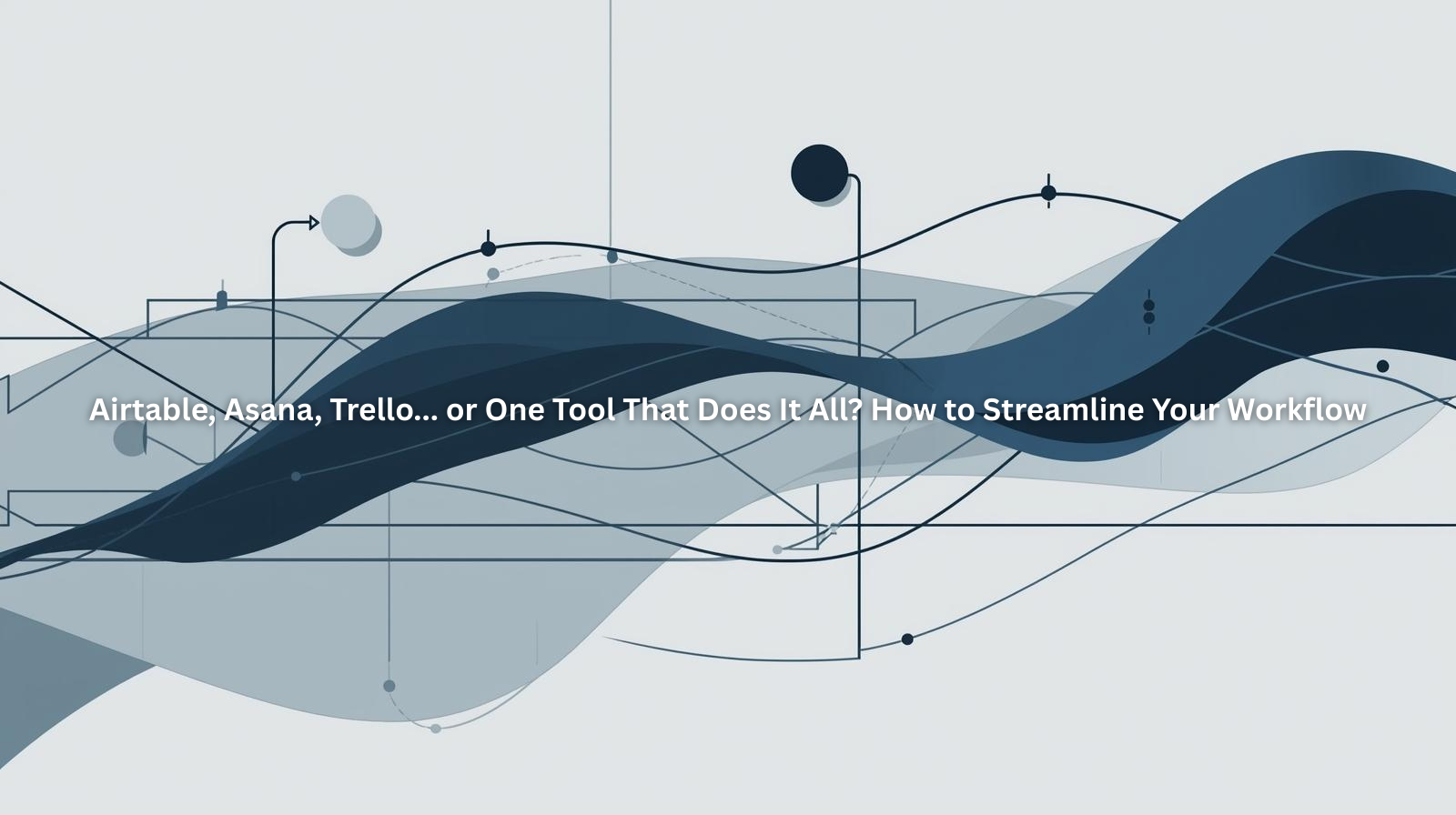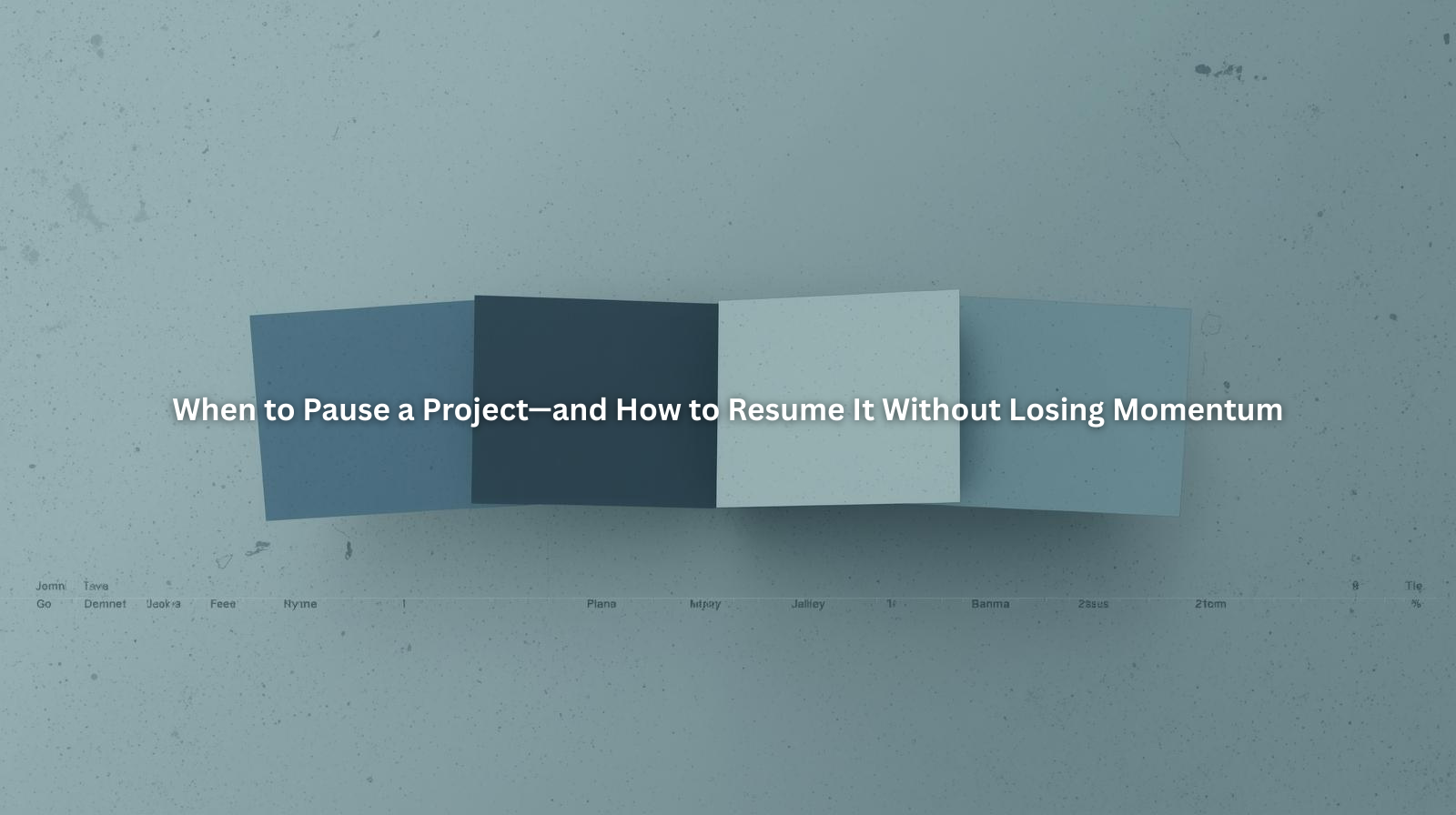The Importance of Contracts in Freelancing: Protecting Your Work

Table of Contents
- Why Contracts Are a Must-Have for Freelancers
- What Happens Without a Contract?
- What to Include in a Freelance Contract
- Contract vs. Scope of Work: What’s the Difference?
- Tips for Writing Contracts That Clients Understand
- How ProjectBook.co Helps You Stay Organized Beyond the Contract
- Frequently Asked Questions (FAQ)
Why Contracts Are a Must-Have for Freelancers
Contracts aren’t just for big agencies or high-ticket projects. If you’re doing client work—at any price, for any type of project—you need a contract.
Why? Because a contract:
- Clarifies what’s being delivered (and what’s not)
- Protects your time, energy, and intellectual property
- Outlines payment terms, timelines, and expectations
- Helps prevent scope creep and missed payments
- Gives you something to refer back to if things go sideways
But most importantly, a contract builds trust. It shows your client that you take your work—and their investment—seriously.

What Happens Without a Contract?
You might be thinking: “But I’ve worked without contracts before and it was fine.”
And maybe it was. Until it’s not.
Without a contract, you’re more likely to experience:
- Scope creep ("Can we just add this one thing…?”)
- Payment delays ("I thought we paid you already.")
- Client confusion ("Wait, I assumed you were handling this too.")
- Intellectual property disputes ("Who owns the files again?")
- Communication breakdowns ("I thought we agreed on something else.")
In short, no contract = no clarity. And that’s a risk to your business.
What to Include in a Freelance Contract
Your contract doesn’t have to be 15 pages long or written in legalese. But it should be clear, specific, and cover the essentials.
Here’s what every freelance contract should include:
1. Project Scope
What exactly are you doing? Be specific. Link to or include your scope of work (SOW).
Example: “Design and deliver a 5-page Squarespace website, including homepage, about, contact, services, and blog pages.”
2. Deliverables
What’s being handed over at the end of the project? In what format?
Example: “Final high-res logo files in PNG and SVG formats.”
3. Timeline
When will the work start? When will it end? Are there specific milestones?
Example: “Initial concept delivered within 7 business days of kickoff.”
4. Payment Terms
How much are you being paid? When is payment due? Are deposits required?
Example: “50% deposit required before work begins; final 50% due upon delivery.”
5. Revisions
How many rounds of revisions are included? What happens if the client wants more?
Example: “Includes two revision rounds. Additional rounds billed at $100/hr.”
6. Client Responsibilities
What do you need from the client (assets, approvals, etc.)—and by when?
Example: “Client must provide written content and images by [date].”
7. Late Fees or Termination
What happens if payment is late? Or if the project is canceled?
Example: “Late payments incur a 5% monthly fee. Either party may cancel with 7 days’ notice and prorated payment for work completed.”
8. Copyright and Usage
Who owns the work? Are there usage limitations or licensing rights?
Example: “Final designs become the property of the client upon full payment.”
9. Signatures
Both parties should sign (digitally or physically) before the project begins.
Contract vs. Scope of Work: What’s the Difference?
Your contract outlines the terms of your working relationship.
Your scope of work outlines the details of the project.
Together, they form the full agreement—but they serve different purposes.
💡 Pro tip: Attach your scope of work as an addendum to your contract. That way, any change in the scope can be documented and updated without rewriting the whole agreement.
Tips for Writing Contracts That Clients Understand
A great contract protects you without scaring the client away. Here's how to strike the balance:
- Use plain English, not legal jargon
- Format it cleanly (headers, bullet points, short paragraphs)
- Include a summary or “what this means” line under each section
- Offer to walk through it during your kickoff call
- Keep it short and skimmable, unless the project is highly complex
Remember: if your client can’t understand your contract, they’re less likely to trust it.

How ProjectBook.co Helps You Stay Organized Beyond the Contract
A signed contract is only part of a smooth freelance process. You also need to manage what happens after—deadlines, deliverables, revisions, and communication.
That’s where ProjectBook.co becomes your secret weapon.
With ProjectBook.co, you can:
✅ Link contracts to each client project
✅ Track the tasks that flow from your scope of work
✅ Monitor timelines and delivery milestones
You can even document change requests or project pivots inside the same system, keeping everything aligned and easy to reference.
No more switching between folders, spreadsheets, and inboxes. Just clear, structured projects that flow from contract to completion.
.png)
Frequently Asked Questions (FAQ)
Do I really need a contract for small projects?
Yes. Even small jobs can go off-track without clear expectations. A contract keeps both parties aligned—even if the project only lasts a few hours.
Can I use a template for my freelance contracts?
Absolutely. In fact, starting with a template and customizing it per project is smart. You can create reusable contract + SOW templates inside ProjectBook.co.
Should I get a lawyer to review my contract?
It’s a good idea, especially for long-term or high-value work. But if you’re just starting out, use a solid template and revise as you gain experience.
What happens if a client refuses to sign a contract?
That’s a red flag. If someone isn’t willing to sign an agreement, they may not be serious about respecting your time, boundaries, or payment terms.
Does ProjectBook.co offer e-signature or contract storage?
You can link signed contracts, link to e-signature platforms, and store all scope and agreement docs inside the client’s project view. Everything stays in one place for easy reference.
Final Thoughts: Contracts Are Confidence
If you’re nervous about enforcing boundaries or dealing with client issues, a contract gives you something to stand on.
It’s not just legal protection—it’s a communication tool.
It says, “I take this seriously—and I want us both to succeed.”
Want to store, reuse, and track your contracts and scopes in one place?
Try ProjectBook.co and build your freelance business on clear systems—not crossed fingers.


